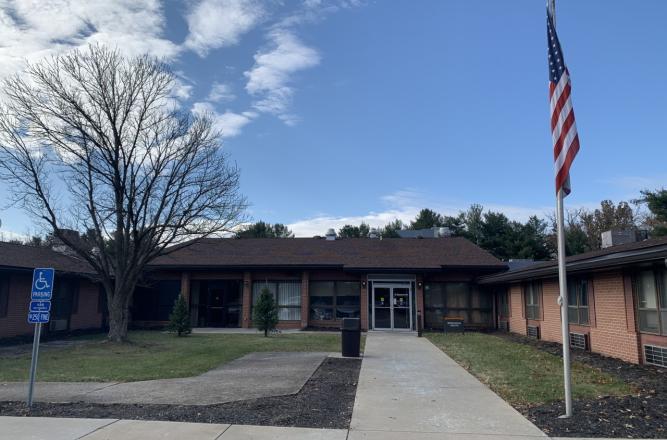Mid-Ohio Behavioral Health
930 Bethesda Drive
Zanesville, OH 43701
United States
The Genesis behavioral health program includes a full-range of mental health and substance abuse treatment.
930 Bethesda Drive
Zanesville, OH 43701
United States
2951 Maple Avenue
Zanesville, OH 43701
United States

Genesis' behavioral health program provides comprehensive psychiatric services and substance abuse treatment.
Genesis Behavioral Health is here to support you on your journey toward feeling better, healing and finding balance. Our inpatient and outpatient programs are designed to be comfortable, accessible and focused on helping you build the life you want.
You’ll feel at home in our building with private rooms, natural light, exercise equipment, quiet areas and more. Call Genesis Behavioral Health at 740-454-5927 for more information.
Genesis Inpatient Behavioral Health provides a safe, supportive and therapeutic environment for individuals experiencing acute mental health needs. Our multidisciplinary team, including psychiatrists, nurses, therapists and support staff, works collaboratively to stabilize symptoms, restore safety and start the path toward recovery.
We partner closely with families and community providers to ensure seamless communication and coordinated discharge planning. Our goal is to help each patient regain stability, build coping strategies and transition safely to the next level of care with continued support.
Genesis Outpatient Behavioral Health offers comprehensive, person-centered treatment in a flexible and supportive setting. Designed for individuals who do not require 24-hour care, our program provides accessible services to support ongoing recovery, symptom management, and long-term well-being.
With convenient scheduling and specialized services for diverse needs, our outpatient program empowers individuals to continue their healing while maintaining routines at home, school or work. We are committed to compassionate, evidence-based care that supports each person’s journey toward lasting stability and wellness.
Our inpatient service program is a multidisciplinary team, including psychiatrists, nurses, therapists and support staff, that works collaboratively to stabilize symptoms, restore safety and begin the path toward recovery.
Patients receive 24/7 clinical care, psychiatric evaluation, medication management, crisis intervention and evidence-based therapeutic programming tailored to their unique needs. Group therapy, psychoeducation and structured daily activities promote healing, skill-building, and wellness.
Our outpatient program clients receive high-quality care from licensed clinicians who offer individual therapy, group therapy and medication management. Treatment plans are tailored to individuals' goals, focusing on building resilience, improving daily functioning, and promoting sustained emotional health.
We offer: